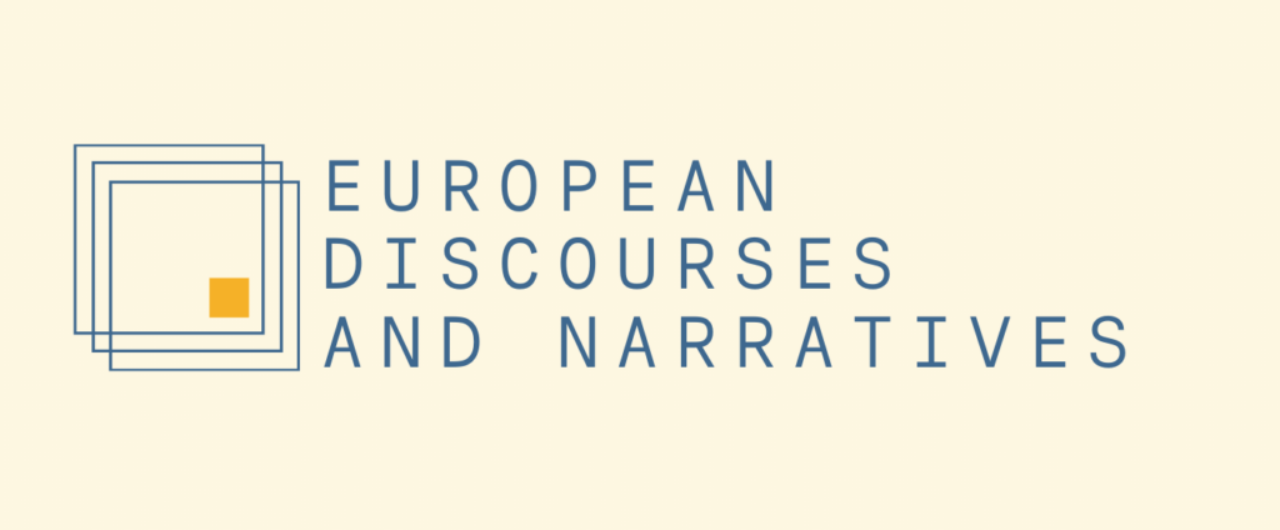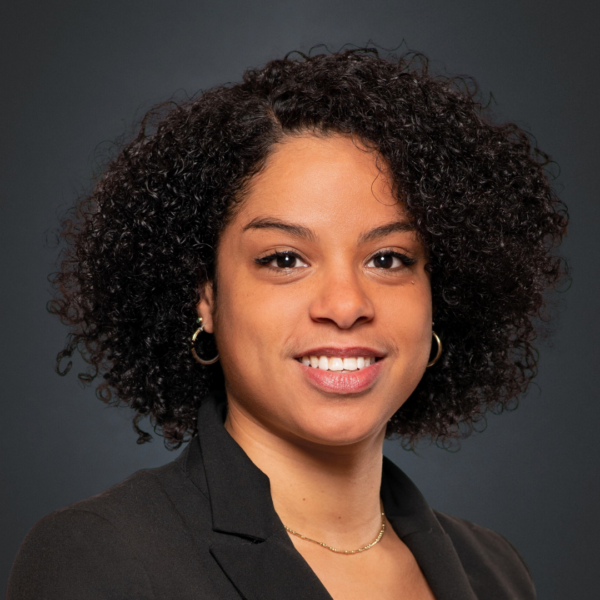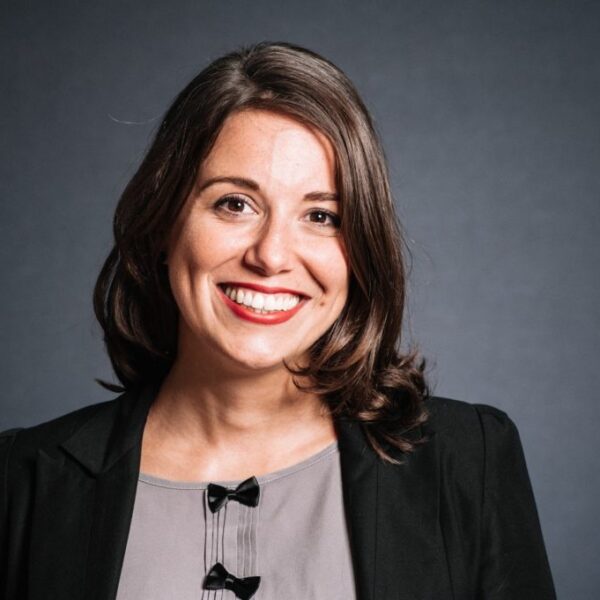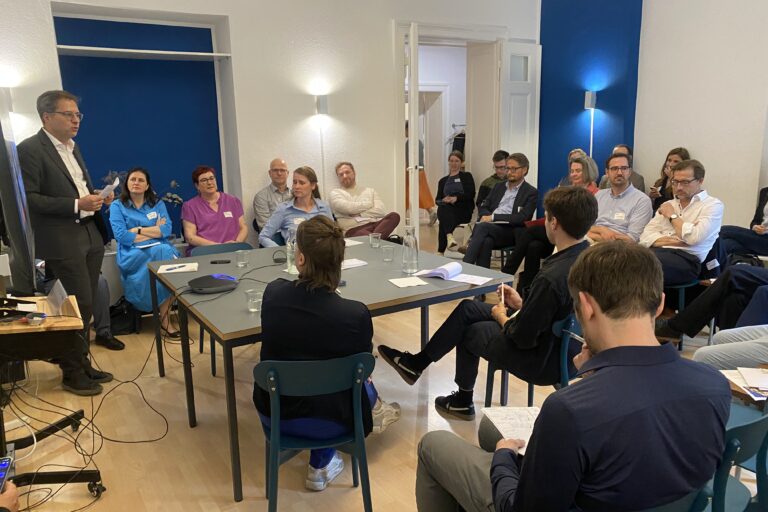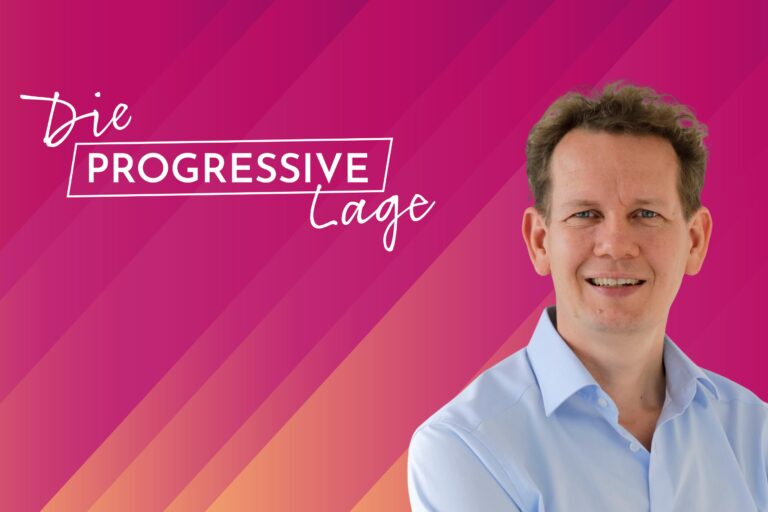One of the main challenges in strengthening the European public sphere is the creation of a genuine European discourse community. National discourses have been following a slow trend of Europeanisation, but platforms, media, and spaces for genuine European discourse remain limited.
The working group’s facilitator:
Ophélie Omnes

Ophélie Omnes is President of the French chapter of the European Federalists. She is also a French qualified lawyer with experience gained in Paris, Brussels and Luxembourg. As a Visiting Fellow at Das Progressive Zentrum, she works in the International Dialogue programme, on the topics of the institutional architecture of the European Union, the role of Franco-German friendship and the creation of a European public space.
Ophélie Omnes has been an activist in the federalist movements since 2010, being active on both national and European levels, focusing, among other things, on the institutional reforms needed at EU level and transnational cooperation. She has been leading several diversity-focused projects in politics and business, including the JEF task force on „Empowerment & Diversity“ (since 2017) and the „Diversity and Inclusion“ Luxembourg group of a global law firm in 2018 and 2019. She is always happy to take part in a panel – or moderate it – and to coordinate projects.
The fellows of this working group:
Dr. Andrea Augsten
A European Public Sphere provides a sense of community by creating shared experiences. Until now, many citizens just feel indirectly related to the EU which appears as an abstract political construct in their daily lives. Shared experiences would offer a huge potential for identification and thus give meaning to the EU as a whole.
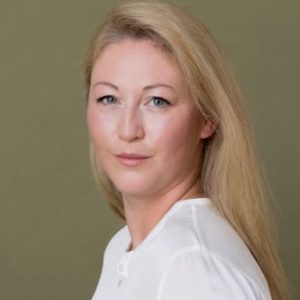
Dr Andrea Augsten heads the team for innovation management at the German Corporation for International Cooperation GmbH. In the scope of her work in corporate foresight and digital transformation with Volkswagen AG, she earned her doctorate in design management and organizational development. In addition to her consultancy work, she teaches as a design researcher at universities and institutions in Germany and abroad. She is an associate member of the Club of Rome’s Think Tank 30 and a fellow of the German Federal Competence Center for Cultural and Creative Industries.
Dr. Stefan Cibian
There is no future for Europe without a vibrant public sphere and inspired citizens!
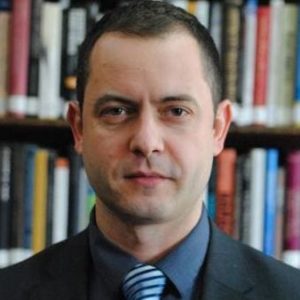
Dr. Stefan Cibian is co-founder and executive director of the Făgăraș Research Institute and an Associate Fellow with Chatham House, Africa Programme; he is also teaching international development at Babeș-Bolyai University. Stefan’s core research and teaching interests relate to international development, foreign policy, and Africa – EU / CEE relations; he has a particular interest in interdisciplinary research and in the interconnection between research, practice, and the community. Stefan is the President of FOND, the Romanian NGDO Platform, and GRASP, of the Global Romanian Society of Young Professionals (GRASP); the Treasurer of CONCORD – the European NGO Confederation for Humanitarian Aid and Development; and a board member with Țara Făgărașului Community Foundation (FCTF), the Romanian Federation of Community Foundations (FFCR), the Romanian Association for International Cooperation and Development (ARCADIA), and UiPath Foundation. Stefan is a member of the Bosch Alumni Network, the Global Diplomacy Lab, the Turkey-Europe Future Forum & Stiftung Mercator Alumni Network, the Responsible Leaders Network of BMW Foundation Herbert Quandt, and the GIZ Global Leadership Academy.
Ana-Marija Cvitic
A dynamic artistic and cultural scene is the key to foster the European public sphere – especially in our digital age.

Ana-Marija Cvitic is a scholar on European Studies and editor-in-chief of the interdisciplinary culture portal Béton Bleu Magazine. As a former Research Associate at TLGG and founding member of Polis180, Grassroots Think-Tank for Foreign Policy and European Affairs, she researches and publishes at the intersection of European Public Sphere, Culture and Digitalization. In 2019 she was nominated for the Politikaward 2019 for the independent EU-campaign „Operation Götterfunken“. Ana-Marija Cvitic studied European Law and Cultural Studies at the University of Vienna and Sciences Po Paris.
Dr. Andreas Schiel
Europe needs a resonant public sphere in which every voice can be heard and answered!

Dr Andreas Schiel is a philosopher and social scientist involved in future studies and projects in the fields of democracy and co-creation, the digital transformation, and the future of work. In 2014 he co-founded denkzentrum|demokratie, a Berlin-based independent not-for-profit think tank dedicated to the advancement of democracy. Andreas works as a researcher, speaker, teacher, and advisor for several initiatives and organizations.
Antonina Stępniak
A European public sphere is essential in order to create closer ties between European citizens and to create a people’s Europe.
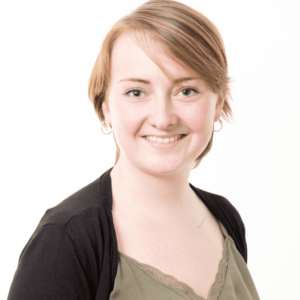
Antonina Stępniak is a Polish activist involved in the European movement. She studied European Affairs at Sciences Po in France, and returned to Poland to fight for the European values and the rule of law.
Christian-Zsolt Varga
Christian-Zsolt Varga is an editorial coordinator at the international journalist network n-ost.org with a focus on European cross-border journalism. He loves to work collaboratively across borders and to connect journalists from all over Europe. He strongly believes that our European reality is already much more integrated and complex than national media bubbles are able to depict. European media outlets, editors, and correspondents need to explore and build new collaborative rails for an integrated European media sphere; a prerequisite for a strong European public sphere.


